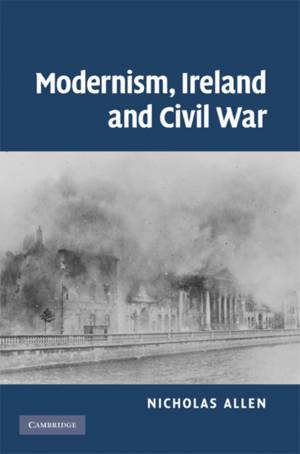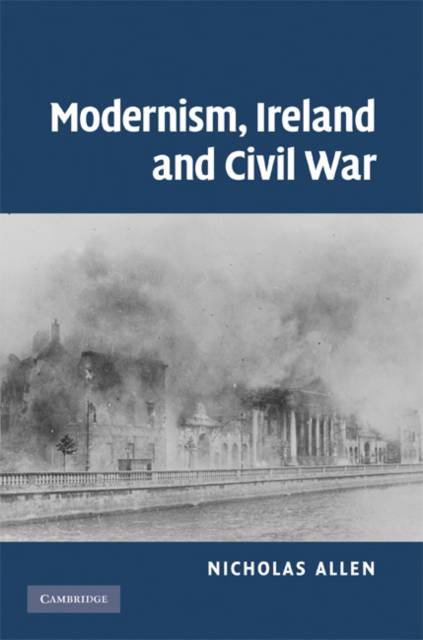
Bedankt voor het vertrouwen het afgelopen jaar! Om jou te bedanken bieden we GRATIS verzending (in België) aan op alles gedurende de hele maand januari.
- Afhalen na 1 uur in een winkel met voorraad
- In januari gratis thuislevering in België
- Ruim aanbod met 7 miljoen producten
Bedankt voor het vertrouwen het afgelopen jaar! Om jou te bedanken bieden we GRATIS verzending (in België) aan op alles gedurende de hele maand januari.
- Afhalen na 1 uur in een winkel met voorraad
- In januari gratis thuislevering in België
- Ruim aanbod met 7 miljoen producten
Zoeken
Omschrijving
The first two decades of Irish independence were fraught and the formation of the post-imperial state was a continual controversy. The conditional perception of what Ireland was, should, or might be coincided with a revolution in the arts. Now forgotten cultures flared and disappeared, little magazines, cabaret clubs, riots and theatres erupting in a fluctuating public sphere. Nicholas Allen reads the crisis of Irish independence as formative of newly experimental relations between novels, poems, paintings, artists and audiences. The conditional, unfinished spaces of the modernist artwork were an unfinished civil war. In connecting these texts and times, Allen locates Joyce, Beckett, Jack and W. B. Yeats in the controversies surrounding the Irish state after 1922. With its interdisciplinary perspective on artists and contexts, this book is a major contribution to the study of Irish culture of the 1920s and 30s and of modernism's histories.
Specificaties
Betrokkenen
- Auteur(s):
- Uitgeverij:
Inhoud
- Aantal bladzijden:
- 240
- Taal:
- Engels
Eigenschappen
- Productcode (EAN):
- 9780521489959
- Verschijningsdatum:
- 2/07/2009
- Uitvoering:
- Hardcover
- Formaat:
- Genaaid
- Afmetingen:
- 152 mm x 229 mm
- Gewicht:
- 517 g

Alleen bij Standaard Boekhandel
+ 366 punten op je klantenkaart van Standaard Boekhandel
Beoordelingen
We publiceren alleen reviews die voldoen aan de voorwaarden voor reviews. Bekijk onze voorwaarden voor reviews.









